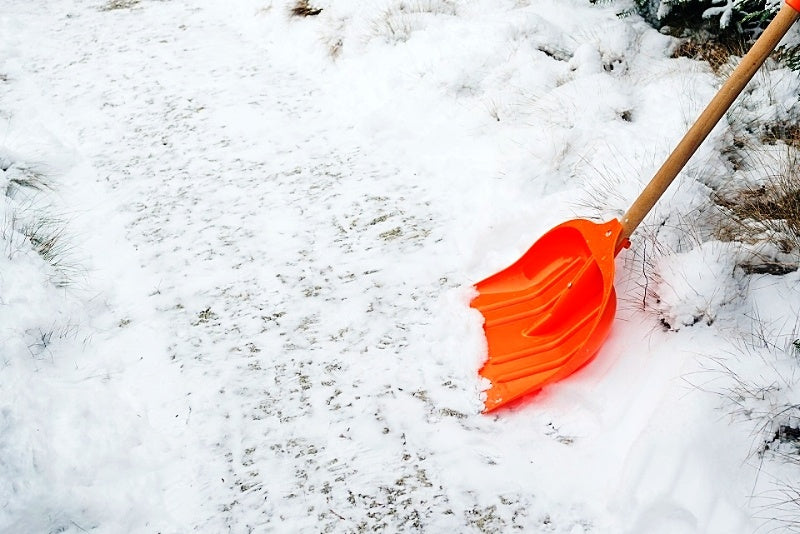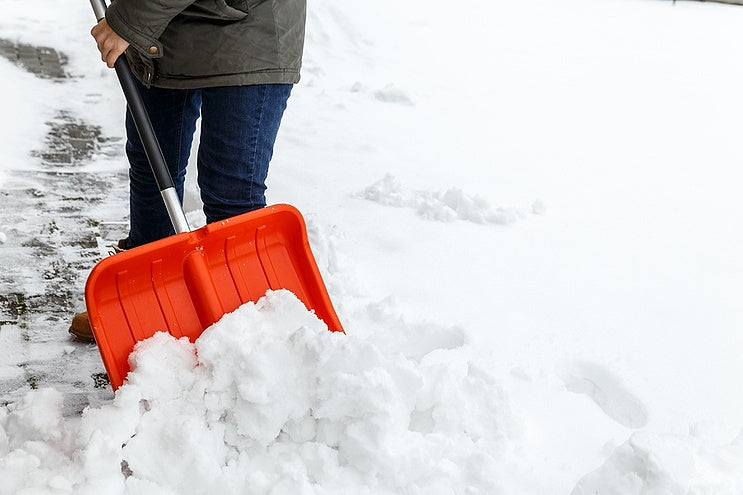
Rock salt's destructive tendencies on driveway pavements, especially on concrete but on asphalt as well, are well known. It is not surprising, then, that many homeowners are now seeking alternatives to rock salt when it comes to deicing their driveways and outdoor foot-traffic pavements.
Below, we offer 6 chemical deicers that can take the place of rock salt and 4 non-chemical deicing solutions to consider. These options are not all mutually exclusive, so feel free to mix and match and find the approach that works best for you.
Chemical Deicing Alternatives to Rock Salt
Other chemical deicing agents have become more and more common at local home improvement stores and other suppliers, and there are a wide range of products to choose from. These deicers are generally superior to rock salt, but not necessarily in every respect, and they will cost more (whether a little more or a lot).
Here are six of the more commonly available "alternative" deicers on the market:
-
Calcium chloride: This popular deicer will melt ice down to -26º F (-32.22° C) instead of the 15º F (-9.44° C) to 20º F (-6.67° C) range in which rock salt is effective. As it absorbs water quite easily, it must be stored plastic/metal containers sealed with lids. It will not hurt plant life like rock salt can, but it may leave a bit of a residue on your driveway after melting the ice. Because it releases a lot of heat when it contacts ice, calcium chloride will also melt ice faster than rock salt.
-
Magnesium chloride: Whether in liquid or granule form, magnesium chloride is much like calcium chloride but only effective down to 1º F (-17.22° C) and not quite as fast at melting ice. It is still superior to rock salt, however.
-
Potassium chloride: Potassium chloride only works down to 25º F (-3.89° C) but is considered very "environmentally friendly," not hurting plants nor local water supplies. It can be used effectively when outdoor temperatures are not extreme.
-
Urea: Urea, like potassium chloride, only works down to 25º F (-3.89° C). It is one of the most plant-friendly deicers available, but it can cause algae bloom in ponds if run-off water reaches them.
-
Liquid potassium-acetate: This product is not best for melting ice but is effective at preventing ice formation to begin with when applied to your driveway just before a storm strikes. It is biodegradable and environmentally safe.
-
Calcium-magnesium acetate: Like the anti-icing agent just above, calcium-magnesium acetate is good at preventing ice formation. It has very small granules, making it able to cover larger areas with smaller quantities and still work effectively.
Note that alternative deicers will generally accelerate freeze-thaw cycle damage to pavements just like rock salt, though not usually to as high a degree.
Non-chemical Deicing Alternatives to Rock Salt
While it may not always be practical to completely eliminate chemical deicers, you can at least minimize their use and thus the damage they cause. Here are 4 non-chemical deicing methods to help save your pavements and landscaping:
-
Mechanical methods: Removing snow early in the morning and soon after it first falls by shovel, snow blower, or snow plow is best practice. If you have heart or other medical conditions, it is safer to hire out the work, but mechanical removal is 100% safe for your pavement as long as you are careful not to scrape or ding it with any sharp edges.
-
Traction-boosting agents: Another strategy is to lay down sand or sawdust to boost traction on your driveway. This will not melt any ice, but you can mix in "just enough" deicer if necessary. Do not use ashes or kitty litter, however, or your driveway will get rather messy.
-
Heated driveways: Hydronic and electric-coil heated driveway systems are very expensive to install, but once in place, they are extremely convenient and melt away snow/ice effortlessly. This option will likely involve tearing up your existing driveway, however.
-
Snow melting mats: Not only are there effective snow-melt mats for walkways and entryways, but you can also use heated snow melting mats that are specifically designed for driveways. The result is much like having a "portable" heated driveway for a much lower cost.
Rock salt is often resorted to because it seems like the only viable way to melt ice and snow from home driveways, but this is simply not the case. There are many other chemical and non-chemical deicing methods that work well and are cost-efficient. Each homeowner, however, will need to weigh the benefits, drawbacks, and cost of each method to form an overall ice-melting strategy that works best for him or her.


